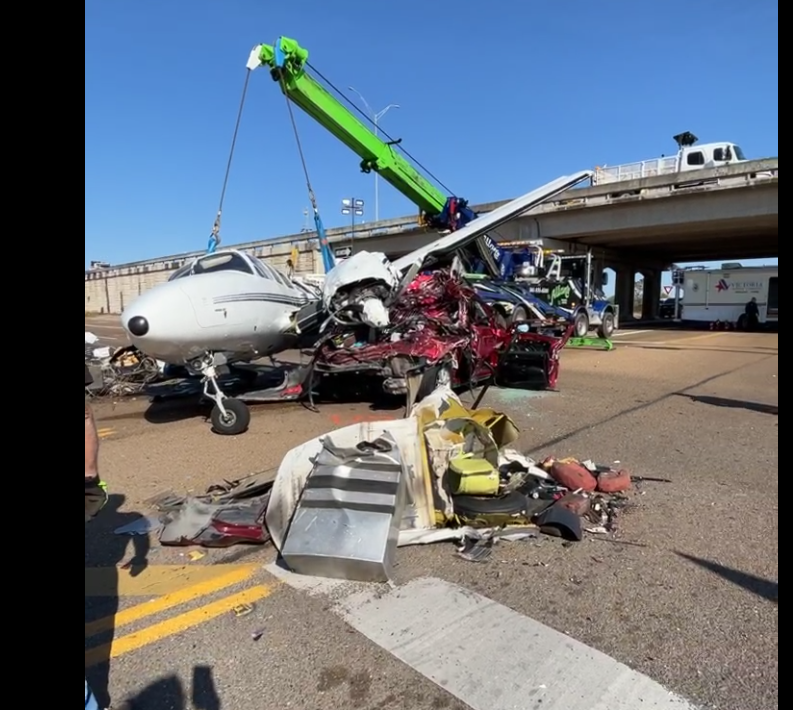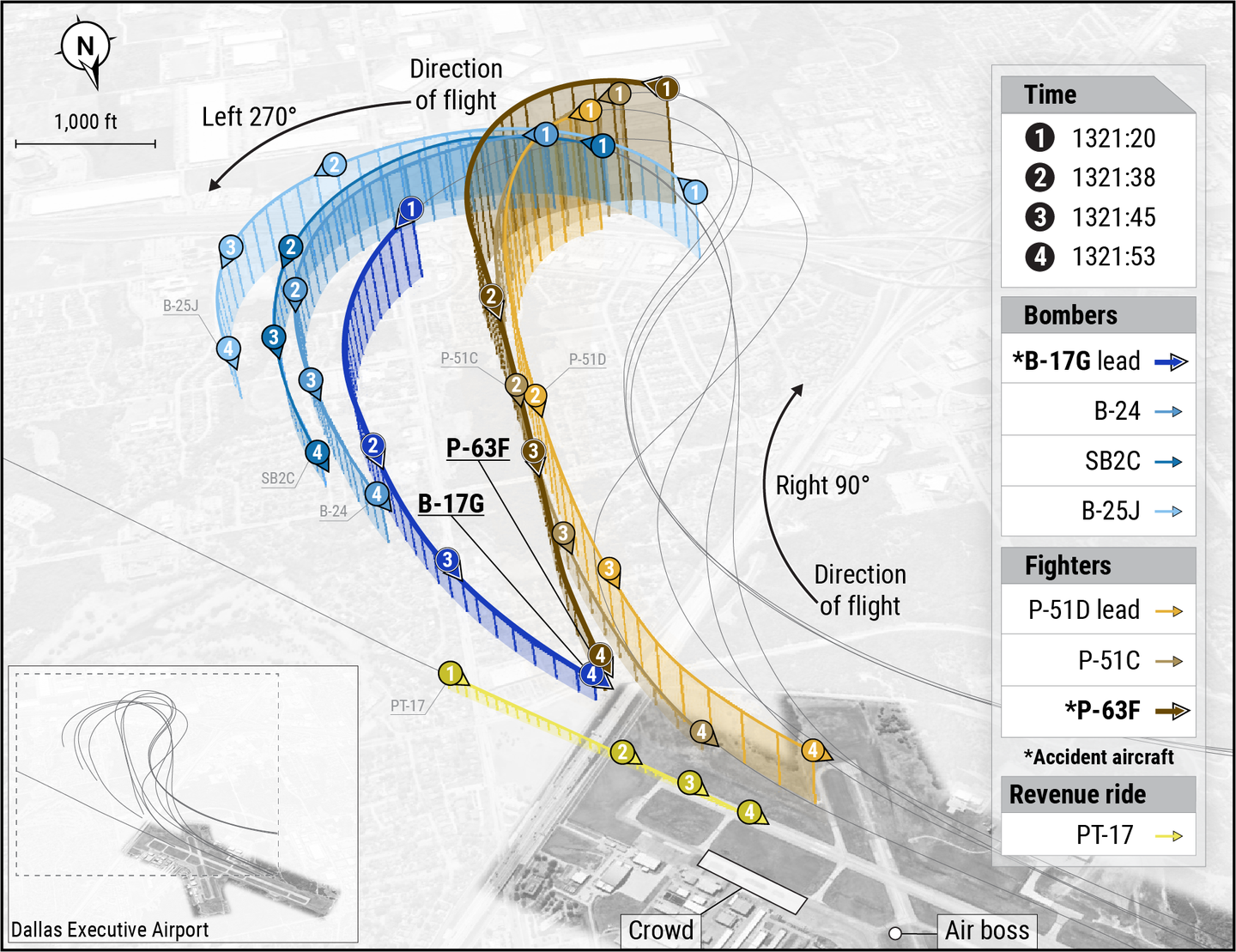Evidently, Legends Make Mistakes, Too
That’s one lesson to draw from Harrison Ford’s latest scrape. The other is how to avoid doing the same.
What the camera and teleprompter giveth, it can just as rapidly take away. That would be my salient observation from Harrison Ford's recent dust-up at the Orange County Airport in California. You will not have missed, I'm sure, the story that Ford flew his Husky over the top of a stopped American Airlines 737 and followed that with a landing on a taxiway parallel to the runway he had actually been cleared to land on. Probably a perfect three pointer, too.
I'm less interested in dissecting the why of this incident than I am two other aspects: First, how to avoid such things in the first place and, second, what PR damage is done when a high-profile person like Ford gets involved in an accident or incident. This is the fourth such event for Ford and I'm sure that when EAA declared him to be a Living Legend of Aviation, they weren't thinking of legendary exploits through the infinite variety of 91.13. But who among us hasn't been in the barrel?
In aviation, we're fond of using celebrities who fly as promotional vehicles for the industry. And why not? Ford has shown up to help promote various aviation causes and events and even though I'm not particularly wowed by famous people, I acknowledge that others are. If it sells avgas and flight lessons, I'm all for it. But I'm not particularly convinced such endorsements really achieve much.
The other edge of this blunt, rusty axe, however, is when said celebrity gets into a scrape, it gets a lot of press that, if not negative, isn't exactly desirable, either. Scanning the hundreds of stories published of Ford's Orange County incident, I see most of them are straight news, although a few determined reporters got sources to say this was much more dangerous than it in fact was and that he should turn in his certificates. Overreact much? Many news writers cut and paste the phrase that Ford is "an accomplished pilot" then in the very next sentence catalog the other mishaps he's had.
To be honest, if celebrity promotion of aviation doesn't do much to help, I don't think something like this does much to hurt, either. It will spin out the news cycle by next week and we'll be on to obsessing about President Trump's palace intrigue.
As pilots, we know stuff like this happens every day, although not necessarily at Part 139 airports like John Wayne. We cover—we meaning AVweb—Ford because the mainstream media does and we have little choice to do otherwise lest we appear to be sandbagging. However, when I taxied the Cub into a Cirrus last Thursday and caused a fire that destroyed three airplanes, we didn't cover it because I'm not a celebrity. OK, so that didn't happen, but it could have. And we probably would have covered it because I'd have gotten good video and I'm all about the clicks. Viral gold is just one iPhone clip away.
The lemonade-from-lemons here is just for pilots. It gives bloggers like me grist to grind by pointing out that something like this is just as easily avoided as it is being something that can happen to any of us and probably has for anyone who has flown for many years. I'm sure other people a lot smarter than me will write thousands of words of theory to back up an analysis of why it happened to Harrison Ford. But I think it's actually a lot simpler than that.
As wisdom seeps into my head despite my clinging to the maturity of a 17-year-old, I am less impressed with the complicated ways we sometimes employ to solve problems in aviation. One that comes to mind—and one I simply detest—is mnemonics like IMSAFE, which we blithely pass along like candy at Halloween. I can't even remember what the damn letters are supposed to remind me of, so I don't use it. Is it really just a diabolical short-term memory test?
I have become a big fan of OODA loops and have come to understand they work for everything. Years ago, I was taught this banal trick by a flight instructor named Ed Weber who checked me out in the first retractable I ever flew, a Mooney. Somewhere on final, he said, just say this to yourself: "Final landing check, the gear is down." To this day, I still do that, usually out loud, and even in a fixed-gear airplane. Although we didn't call it that then, that's an OODA loop or perhaps a fragment of one.
What it does is this: It breaks up the target fixation we're all capable of suffering when making decisions under duress—maybe it's gusty, the radio is wall-to-wall, there's a lot of traffic or the weather is low. To complete the desired task—say, landing—you naturally tune out all those distractions, but what also gets tuned out is reserve mental bandwidth to do error checking. In all but the most extreme of circumstances, the motor skills required to fly the airplane are baked in; you don't need to think about it. That leaves a lot of surplus bandwidth to simply ask, "Have I forgotten anything?" All you need is some little trick to jar you loose from the closed loop of task fixation, a means to momentarily draw back and assess—the observe and orient part of OODA. Observe also means seeing the world as it is, not as you think it should be.
Some years ago, when I visited the Navy's LSO school in Norfolk, one of the instructors there mentioned to me something I'd heard several times. He said every LSO had some version of a "sugar call," a magic word or two or a soothing tone meant to calm a pilot or snap him out of teeth-clenched tunnel vision focused on the deck, the AoA or some other distraction that should only be a piece of the whole picture, not the picture itself. "Final check, gear down" is my version of a self-generated sugar call. I'm sure you could devise your own or some other means of avoiding task fixation.
Flying more helps, too. These days, some of us are lucky to see 60 hours a year when 100 would do wonders for proficiency. Head tricks like sugar calls and OODA loops may do only so much to avoid bending metal or landing on the wrong runway, but then again, sometimes all you can do is fix what you can with what you've got.






